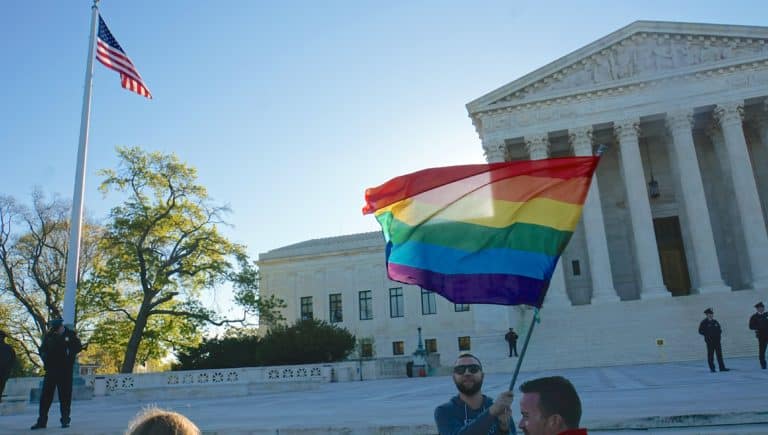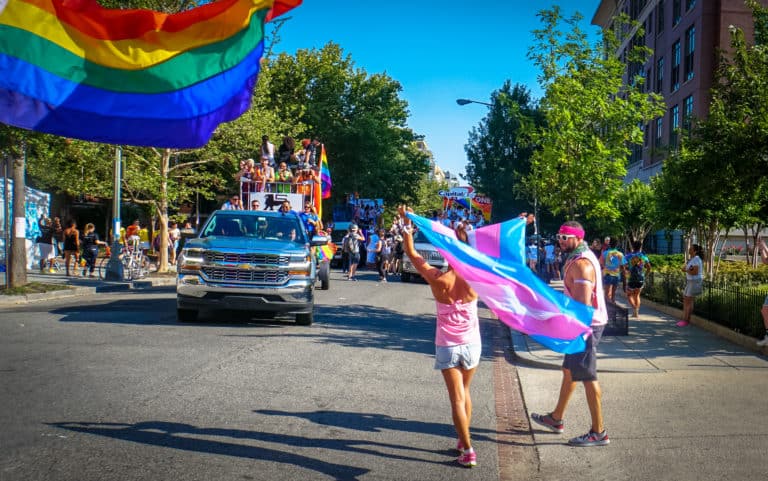
Ellie Samuels is a student at Harvard Law School.
The path to the perfect Hooters Girl has been paved with discrimination. For forty years, Hooters’ image and brand has been singularly tied to its waitresses. These servers are almost always thin, pretty, young women. Though Hooters’ central menu item is its chicken wings, the majority of the restaurant’s website and branding surrounds not wings, but “Hooters Girls,” clad in their signature uniform (orange shorts and a low-cut white tank top). A company’s dependency on the sex appeal of waitresses necessitates fixating on attractiveness and desirability. This focus can and does devolve into racist stereotyping and sexually hostile work environments. Wealthy corporations get away with a lot, and Hooters is no exception. By pricing in illegal discrimination, the company avoids accountability, while inadvertently revealing the limits of contemporary employment law.
Making a Hooters Girl
For decades, the Hooters franchise has been under scrutiny for discrimination claims. In 1997, a group of men sued Hooters for its practice of hiring exclusively female servers. The restaurant asserted that being female was a Bona Fide Occupational Qualification (BFOQ), an exception to Title VII that allows for sex discrimination based on business necessity. BFOQ arguments frequently arise in the entertainment industry, and have been interpreted narrowly. The crux of the company’s argument was that Hooters waitresses are not merely waitresses, but entertainers, inextricable from the Hooters business model and image. The restaurant ultimately settled with the men for $3.75 million, skirting a court ruling on the issue. As part of the settlement, however, Hooters agreed to create more non-server positions for men.
In intervening decades, Hooters has been accused of engaging in nearly every known type of employment discrimination. They have settled numerous sexual harassment suits. One employee sued a Detroit Hooters in 2010 for weight discrimination under Michigan law; the case was resolved through arbitration. In 2015 Hooters settled for $250,000 with a waitress prohibited from wearing blonde highlights (her manager claimed that the highlights would not look “natural” on her as a Black woman). In August 2023, the EEOC filed suit against a North Carolina Hooters, alleging that after pandemic layoffs, the restaurant failed to rehire only their Black and dark-skinned waitresses. Even before the failure to recall, managers suggested that light skin-toned servers were “more presentable” and made racist comments about Black workers’ appearances. A month later, a Hooters in Louisiana settled a nearly identical racial discrimination suit for $650,000.
Hooters is not the only restaurant of its kind. Hooters competitor Twin Peaks was sued in federal court in 2020 for sexual harassment, with allegations that waitresses were lined up, graded on their bodies, then assigned restaurant sections based on their scores. Servers attested to being placed on “fat probation” and experiencing racist and homophobic harassment. The case settled for an undisclosed amount. Another competitor, the Tilted Kilt, has settled multiple sexually hostile environment claims, including where a manager was caught video recording servers while they changed into their uniforms. These chains, often referred to as “breastaurants,” almost invariably settle or arbitrate any legal claims, avoiding court rulings at all cost.
The “Breastaurant” Today
It’s hard to reconcile the Hooters model with contemporary 2023 values—even the term “breastaurant” feels outdated if not nauseating. The #MeToo movement, launched in 2017, shed light on workplace sexual harassment, particularly within the restaurant industry. The 2020 Black Lives Matter protests prompted many employers, including Hooters, to pledge to address racist hiring practices and end discriminatory treatment of Black workers. New anti-discrimination and anti-harassment laws are passed every year, including a wave of recent #MeToo legislation. Yet Hooters continues to engage in exclusionary hiring and hyper-sexualization of its employees.
Hooters has instituted some changes in recent years, prompting journalists to question if the restaurant was finally abandoning its sex appeal-centric business model. The company dialed up its delivery options in 2018 (positioning them well for the pandemic) and has been expanding “Hoots,” a spin-off restaurant that hires male and female waiters and nixes the signature Hooters Girl uniforms. Yet readers should be skeptical that these changes signal transformation. In 2021, Hooters changed its quintessential orange short-shorts to an even shorter pair bearing a strong resemblance to a thong-style bikini. An employee took to TikTok to complain about the change, writing “so we all know why half the hooters girls want to quit.” Her video garnered over 15 million views and thousands of outraged comments, prompting the CEO to amend the uniform policy to make the shorts optional.
Establishments like Hooters have little incentive to change. The restaurant’s successful adaptation to pandemic dining led the restaurant to pull in over $841 million in 2020, a 2.7% increase across that year. The chain is planning several expansions, including six locations near popular retirement communities. Twin Peaks is set to hit the $1 billion mark in sales by 2027, and is adding 20 restaurant locations. This success shows that rather than fall into obsolescence in an age of social consciousness, so-called “breastaurants” are flourishing.
Holding Lawbreakers Accountable
Some might argue that restaurants like Hooters and Twin Peaks are merely the most overt examples of widespread, systemic problems in American workplaces. In a Daily Beast article by formers Hooters waitress Sascha Cohen, she cautions against believing a Hooters downfall would be a cure-all: “We can disavow the most cartoonishly sexist version of capitalism, but we will still be left with capitalism, minus the cleavage and hot pants.” It’s true that sexual harassment and racism abound across the workforce, and similar lawsuits are routine in the restaurant industry. But what sets Hooters and its progeny apart is the centrality of discriminatory practices to their billion-dollar business models. A business model that prioritizes and fixates on the attractiveness and sex appeal of employees, one that relies on and facilitates discrimination and harassment, is illegal. These chains thrive while continually resolving lawsuits out of court to avoid accountability or change.
The settlement pattern of Hooters and its competitors signals a massive weakness in our discrimination law worth reexamining. To respond, the EEOC must become more aggressive in its enforcement and increasingly reluctant to settle when companies are openly and repeatedly bad actors. Government agencies and impact litigation attorneys should consider pursuing injunctions and other remedies that affect workers beyond the immediate plaintiffs, such as making companies agree to concrete changes in hiring and operation. For example, a settlement deal could include requirements that Hooters institute strict guidelines for its franchise locations to avoid racism in hiring. Additionally, legislatures and government agencies must not only expand employee protections and regulations, such as by making intersectional discrimination legally cognizable, but reimagine employment law enforcement. Wealthy corporations should not be able to pay to discriminate.









Daily News & Commentary
Start your day with our roundup of the latest labor developments. See all
June 30
Antidiscrimination scholars question McDonnell Douglas, George Washington University Hospital bargained in bad faith, and NY regulators defend LPA dispensary law.
June 29
In today’s news and commentary, Trump v. CASA restricts nationwide injunctions, a preliminary injunction continues to stop DOL from shutting down Job Corps, and the minimum wage is set to rise in multiple cities and states. On Friday, the Supreme Court held in Trump v. CASA that universal injunctions “likely exceed the equitable authority that […]
June 27
Labor's role in Zohran Mamdani's victory; DHS funding amendment aims to expand guest worker programs; COSELL submission deadline rapidly approaching
June 26
A district judge issues a preliminary injunction blocking agencies from implementing Trump’s executive order eliminating collective bargaining for federal workers; workers organize for the reinstatement of two doctors who were put on administrative leave after union activity; and Lamont vetoes unemployment benefits for striking workers.
June 25
Some circuits show less deference to NLRB; 3d Cir. affirms return to broader concerted activity definition; changes to federal workforce excluded from One Big Beautiful Bill.
June 24
In today’s news and commentary, the DOL proposes new wage and hour rules, Ford warns of EV battery manufacturing trouble, and California reaches an agreement to delay an in-person work mandate for state employees. The Trump Administration’s Department of Labor has advanced a series of proposals to update federal wage and hour rules. First, the […]